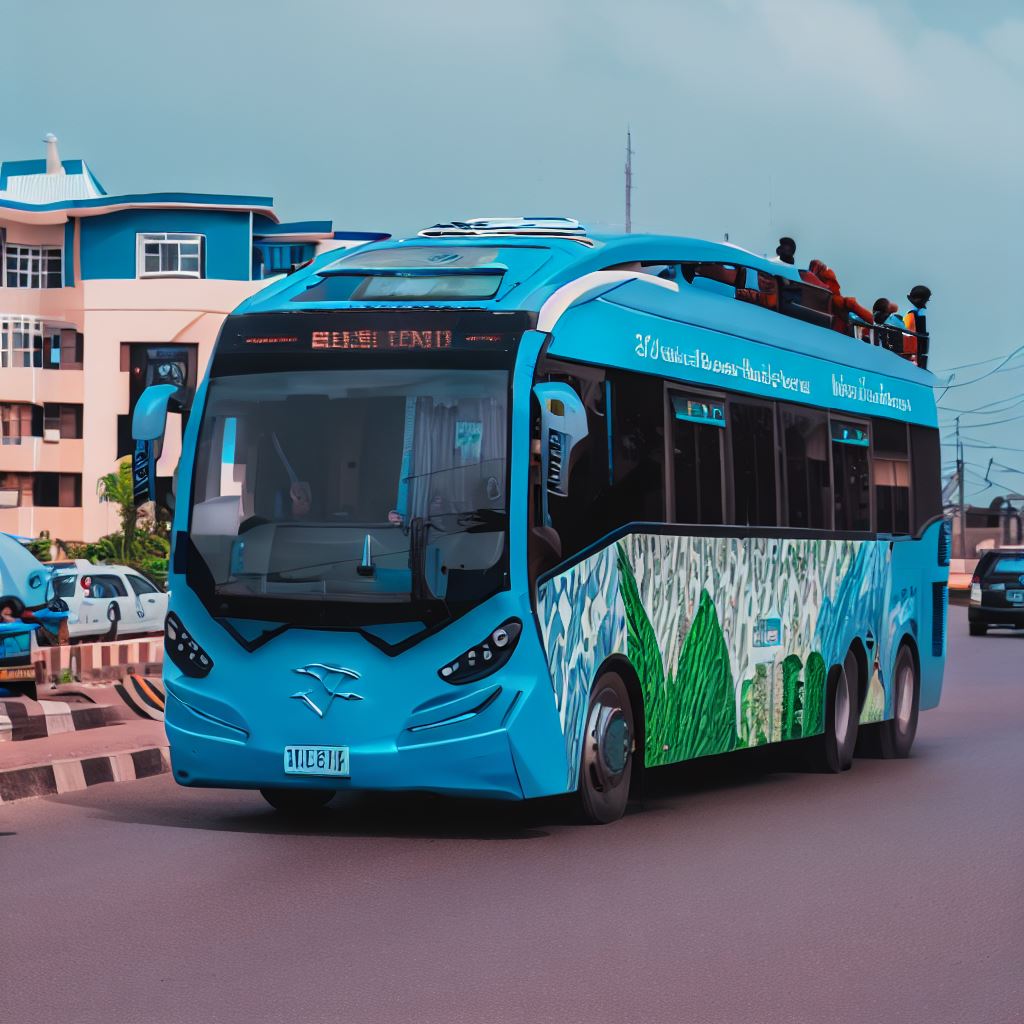Introduction
Social Media’s Far-Reaching Impact
From marketing to healthcare, social media influence is undeniable. In this blog post, we delve into its role in Nigeria’s event planning sector.
Social media, a dynamic and ever-evolving digital landscape, has revolutionized industries worldwide.
Event Planning in Nigeria: A Vital Industry
Event planning is a thriving industry in Nigeria, a nation known for its vibrant culture and diverse celebrations.
It encompasses weddings, corporate events, festivals, and more. Events hold immense cultural and economic significance here.
Thesis Statement: Navigating the Social Media Wave
This section aims to explore the profound impact of social media on the intricacies of event planning in Nigeria.
Pre-Social Media Era of Event Planning in Nigeria
Traditional Methods of Event Planning
In Nigeria’s pre-social media era, event planning relied heavily on word-of-mouth and personal connections.
Event organizers predominantly depended on local networks for gathering information and coordinating logistics.
Traditional approaches included physically distributing invitations, contacting vendors via phone or in person, and relying on community bulletin boards to promote events.
Face-to-face meetings were essential for negotiations and finalizing details.
Challenges Faced by Event Planners Prior to Social Media
Event planners encountered various challenges in the absence of social media.
Firstly, there was limited access to a vast audience, making it challenging to reach potential attendees beyond their immediate circles.
Secondly, verifying the credibility of vendors and suppliers was cumbersome, often resulting in unreliable partnerships.
Additionally, there was a lack of efficient tools for managing RSVPs and tracking guest lists, causing logistical headaches.
Limited Reach and Communication Avenues
Before social media, event planners struggled to expand their event’s reach.
Traditional advertising channels, like newspapers and flyers, had limited effectiveness in reaching diverse demographics. This led to events having a more localized appeal.
Communication avenues were restricted, and updates to attendees were typically disseminated via phone calls or postal mail, causing delays and miscommunication.
Event planners had to rely on their personal networks to spread the word, limiting the potential for growth and exposure.
The pre-social media era posed significant challenges for event planners in Nigeria, hindering their ability to efficiently organize, promote, and manage events.
However, as we will explore in the following sections, the advent of social media brought about transformative changes in the industry.
Read: The Role of Technology in Nigeria’s Event Planning Field
Emergence of social media in Nigeria
Introduction to the rise of social media platforms in Nigeria
- In recent years, social media platforms have gained immense popularity in Nigeria.
- These platforms have become an integral part of people’s daily lives.
- Nigerians have embraced social media for various purposes, including event planning.
- The emergence of social media has significantly influenced the event planning industry in Nigeria.
Popular social media platforms utilized in event planning
- Facebook, with over 25 million users in Nigeria, is one of the most popular social media platforms.
- Event planners leverage Facebook to create event pages, invite guests, and share updates.
- Instagram, with its visual appeal, is another platform widely used for event planning.
- Event planners utilize Instagram to showcase photos and videos of previous events.
- Twitter, with its real-time engagement, is also utilized for event planning in Nigeria.
- Event planners use Twitter to create event hashtags, promote discussions, and provide live updates.
- LinkedIn, primarily a professional networking platform, is also utilized for corporate event planning.
- Event planners leverage LinkedIn to reach out to potential sponsors, speakers, and attendees.
Increase in internet access and smartphone usage
- One of the key factors driving the influence of social media on event planning in Nigeria is the increase in internet access.
- In recent years, there has been a significant improvement in internet infrastructure and connectivity in Nigeria.
- As a result, more Nigerians now have access to the internet, enabling them to engage with social media platforms.
- Smartphone usage has also witnessed a tremendous rise in Nigeria.
- Smartphones have become affordable and accessible, allowing Nigerians to connect to social media on the go.
- This increase in internet access and smartphone usage has directly impacted event planning in Nigeria.
- Event planners can easily reach a wider audience through social media platforms.
- They can promote their events, attract attendees, and generate buzz through targeted social media campaigns.
- Additionally, social media platforms provide event planners with valuable data and insights.
- They can analyze audience engagement, preferences, and feedback to improve future event planning strategies.
Basically, the emergence of social media platforms in Nigeria has had a profound impact on event planning.
Event planners have embraced popular platforms like Facebook, Instagram, Twitter, and LinkedIn to connect with their target audience, promote their events, and enhance attendee experiences.
The increase in internet access and smartphone usage has further facilitated this influence, allowing event planners to reach a wider audience and gain valuable insights.
As social media continues to evolve, it will remain a powerful tool for event planning in Nigeria, shaping the future of the industry.
Read: Certification for Events Coordinators in Nigeria: A Guide
Social Media’s Impact on Event Planning in Nigeria
Social media has revolutionized event planning in Nigeria, offering numerous benefits that traditional methods couldn’t provide.
Enhanced communication and interaction
One major advantage of social media in event planning is the enhanced communication and interaction it offers.
With real-time updates and instant messaging, event planners can have direct and immediate contact with attendees, speakers, sponsors, and other stakeholders.
This facilitates smooth coordination and minimizes miscommunication.
The interactive features of social media platforms also contribute to improved audience engagement and feedback.
Attendees can actively participate in discussions, ask questions, and share their experiences, making events more inclusive and memorable.
Event planners can gather valuable insights and make necessary improvements based on the feedback received.
Increased reach and exposure
Social media has significantly increased the reach and exposure of events in Nigeria.
Through targeted advertising and promotions, event planners can reach their desired audience more effectively.
They can specify demographics, interests, and behaviors, ensuring that the event reaches the right people.
Moreover, influencer marketing and collaborations have become powerful tools for event promotion.
Influencers with a significant following can create buzz around an event by sharing it with their followers.
This collaboration helps expand the event’s reach and attract a larger audience, resulting in increased event attendance and engagement.
Cost-effective event planning solutions
Social media platforms offer cost-effective event planning solutions, making it accessible to a wider range of organizers.
Event planners can save on marketing expenses by utilizing the affordable advertising options provided by social media.
Compared to traditional advertising methods, social media ads are often more affordable and provide better targeting capabilities.
Additionally, social media enables efficient use of resources for event planning.
Online tools and platforms offer features that simplify event management processes, such as ticketing, registration, and attendee tracking.
These tools streamline operations and reduce the need for extensive manual labor, saving time and resources for event planners.
Generally, social media’s influence on event planning in Nigeria cannot be underestimated.
It enhances communication and interaction, improves audience engagement, increases reach and exposure, and offers cost-effective solutions.
Event planners in Nigeria should embrace social media as an integral part of their strategies to maximize the success of their events.
Case Studies of Successful Event Planning in Nigeria through Social Media
Examples of well-executed events using social media platforms
- A popular music festival in Lagos utilized social media to promote the event and sell tickets.
- A conference on entrepreneurship saw a significant increase in participation after leveraging social media platforms.
- A fashion show in Abuja attracted a large audience by promoting the event through various social media channels.
- A charity gala in Lagos successfully raised funds by leveraging social media platforms to reach a wider audience.
Analysis of strategies and techniques employed
- Event organizers used engaging content, such as videos and captivating images, to generate interest among social media users.
- They utilized targeted advertising on social media platforms to reach the desired audience effectively.
- Live streaming of events through social media platforms helped create a sense of excitement and exclusivity.
- Event hashtags were created and encouraged attendees to share their experiences, increasing online visibility and engagement.
Positive impact on event attendance and overall success
- Social media promotion resulted in a significant increase in event attendance compared to traditional marketing methods.
- Real-time updates and interactive features on social media platforms enhanced attendee experience and engagement.
- Increased online visibility and engagement led to a broader reach and exposure for the events.
- Social media platforms allowed event organizers to quickly respond to inquiries and address concerns, improving overall customer satisfaction.
Essentially, the influence of social media on event planning in Nigeria has been undeniable.
Several successful case studies demonstrate the effectiveness of leveraging social media platforms for event promotion.
By adopting various strategies and techniques, event organizers have been able to attract larger audiences, enhance attendee experience, and improve overall event success.
The positive impact of social media on event planning in Nigeria is evident through increased event attendance, broader reach, and improved customer satisfaction.
As social media continues to evolve, it will continue to play a crucial role in shaping the future of event planning in Nigeria and beyond.
Read: Top Skills You Need to Be an Events Planner in Nigeria

Challenges and Limitations of Social Media in Event Planning
Potential risks and drawbacks associated with using social media
- Spread of false information and rumors that can negatively impact event planning.
- Increased vulnerability to cyber attacks and online harassment.
- Loss of control over event information and potential misuse by unauthorized individuals.
- Negative publicity or backlash due to controversial content associated with the event.
- Difficulties in managing and responding to a large volume of online interactions and comments.
Over-reliance on technology and possible technical glitches
- Dependence on stable internet connectivity, which can be unreliable in certain areas.
- Possible server outages or website crashes that can disrupt event planning activities.
- Incompatibility issues between different social media platforms and event planning tools.
- Difficulties in troubleshooting technical problems and delays in resolving issues.
- Impact of technological failure on attendees’ experience and overall event success.
Ensuring data privacy and security
- Potential risks of data breaches and unauthorized access to sensitive event-related information.
- Lack of control over how social media platforms handle user data and potential misuse.
- Difficulty in complying with data privacy regulations and ensuring legal protection.
- Challenges in implementing adequate security measures to safeguard event-related data.
- Concerns about the privacy of attendees and their personal information.
Potential risks and drawbacks associated with using social media
Using social media in event planning has its share of challenges and limitations that event organizers in Nigeria need to be aware of.
These potential risks and drawbacks associated with social media usage can impact the overall success and effectiveness of event planning efforts.
One major concern is the spread of false information and rumors, which can negatively impact the reputation and credibility of an event.
With the ease of sharing information on social media, it becomes essential for event planners to stay vigilant and address any misleading content promptly.
Additionally, social media exposes event planners to increased vulnerability to cyber attacks and online harassment.
Event pages and profiles can become targets for hackers, who may compromise sensitive information or disrupt the planning process.
It is crucial to implement robust security measures and educate event staff on best practices to mitigate these risks.
Another limitation arises from the loss of control over event information when using social media platforms.
Event details can be easily copied or shared without authorization, leading to potential misuse or unauthorized access.
To counter this, event organizers must maintain a proactive approach in monitoring and managing event information and take necessary measures to protect against misuse.
Negative publicity or backlash due to controversial content associated with the event is yet another challenge.
Social media platforms provide a platform for individuals to voice their opinions, which may not always align with the event’s objectives.
Event planners need to be prepared to handle and respond to such situations effectively, maintaining a positive online presence.
Over-reliance on technology and possible technical glitches
Over-reliance on technology and possible technical glitches can also pose challenges in event planning using social media.
Stable internet connectivity is crucial for seamless communication and engagement with attendees.
However, in some areas, internet accessibility may be unreliable, leading to disruptions in planning activities.
Event organizers must have backup plans in place and consider alternative means of communication.
Furthermore, technical issues like server outages or website crashes can negatively impact event planning progress.
Platforms that handle a large volume of interactions may also face compatibility issues or technical glitches, causing delays or disruptions in accessing important planning tools and features.
Prompt troubleshooting and swift resolution of such issues are vital to ensure uninterrupted planning.
Ensuring data privacy and security
Data privacy and security present additional challenges when utilizing social media for event planning.
Data breaches and unauthorized access to personal information can seriously impact attendees’ trust and confidence in the event.
Event organizers need to stay updated on data privacy regulations, implement security measures, and choose platforms that prioritize user privacy.
In general, while social media offers numerous advantages in event planning, it is essential to be aware of the challenges and limitations associated with its use.
Maintaining a proactive approach towards mitigating potential risks, ensuring robust data privacy, and preparing for technical glitches will contribute to successful event planning and execution in Nigeria.
Read: Leading Event Planning Trends in Nigeria in 2023
Future Trends and Outlook
Predictions on the evolving role of social media in event planning
- Increased reliance on social media platforms for event promotion and engagement.
- More personalized and targeted event marketing strategies utilizing social media data.
- Integration of live streaming and virtual reality to enhance the event experience.
- Growing importance of influencer marketing in reaching wider audiences.
- Social media platforms evolving into comprehensive event planning tools.
Integration of virtual and hybrid events in Nigeria
- Rise of virtual events conducted entirely online, eliminating geographical barriers.
- Hybrid events combining in-person and virtual elements to cater to diverse audiences.
- Investment in advanced technology to facilitate seamless virtual event experiences.
- Development of virtual networking platforms to enhance attendee interactions.
- Integration of virtual and hybrid events as a cost-effective alternative to traditional in-person gatherings.
Opportunities and challenges for event planners in the digital era
- Increased reach and global exposure for events through social media platforms.
- Enhanced data analytics capabilities for better understanding attendee preferences and behavior.
- More efficient event registration and ticketing processes through online platforms.
- Challenges in maintaining audience engagement and attention in a highly competitive digital landscape.
- Need for event planners to adapt and stay updated with emerging social media trends and technologies.
In essence, social media is set to play an even more significant role in event planning in Nigeria’s future.
Event planners can harness the power of social media to reach wider audiences, personalize marketing efforts, and create immersive event experiences.
The emergence of virtual and hybrid events presents new opportunities for event planners to expand their reach and provide a more inclusive experience.
However, the digital era also brings challenges such as maintaining audience engagement and adapting to rapidly evolving social media trends.
By staying updated and utilizing the ever-evolving social media tools, event planners can thrive in the digital era and create impactful and successful events in Nigeria.
Conclusion
Recap of the influence of social media on event planning in Nigeria
Social media has greatly influenced event planning in Nigeria by providing a platform for effective communication, marketing, and collaboration among event planners and stakeholders.
It has revolutionized the way events are organized and has increased their visibility and reach to a wider audience.
Importance of adapting to technological advancements in the industry
The event planning industry in Nigeria must embrace and adapt to technological advancements, especially the use of social media, in order to stay competitive and relevant.
Failure to do so may result in missed opportunities, decreased attendance, and a loss of market share.
Final thoughts on the future of event planning in Nigeria
The future of event planning in Nigeria looks promising with the continued integration of social media and technological advancements.
Event planners need to stay updated with the latest trends and tools in order to deliver memorable and successful events that cater to the evolving needs and preferences of their clients and attendees.




